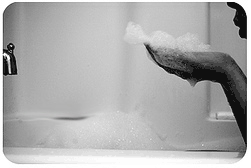Why install Autotaps?
Health Risk
Everybody is driven by the growing concern over germs on toilets and washroom surfaces, and an increasing number of commercial, private, and public buildings are now installing automatic taps, flushers, cleaning systems, and other touch-free devices. In addition to sanitation issues, other factors are also contributing to this trend.
Germ Concerns in Health Sector
Restrooms and wash stations used by nursing home residents and staff members can potentially communicate disease. Nurses and care workers are aware of the risks and, whether they are working in facilities with or without taps automation, they strive to be diligent about frequent and thorough hand washing and other precautions. Elderly and infirm residents, however, are not capable of the same level of personal hygiene.Despite the best efforts of nursing homes to assist residents and to ensure their rooms and bathrooms are clean and sanitary, a common perception among visitors is that germs are pervasive in the bathrooms and toilets. The facilities are not to blame. Rather, the general public's awareness of germs and how they are transmitted has increased, their fears fueled by widely publicized reports of new viruses, such as SARS and virulent strains of the flu.
Why touch?
Increasingly, people are avoiding contact with anything in any bathroom away from home, including the most spotless restrooms. Their suspicions are likely to be greater in bathrooms used by people who are incontinent, sick, or incapable of proper hygiene.Care Facilities
Friends and relatives are naturally going to feel more comfortable visiting a long-term care facility with toilets that are sanitary and designed to promote cleanliness and accommodate easy maintenance. This preference is especially true of families searching for a permanent home for a parent or grandparent.Public Bathrooms
Discovering that resident and guest bathrooms are fitted with touch-free automatic taps, automatic flushers, and possibly other automatic devices could contribute to their selection of a long-term care facility. Just knowing that a family member will have the convenience and luxury of automation will help make them satisfied with their decision.Minimizing Visitors' "Germs Contributions"
The public's assumptions about the sanitation benefits of automation are accurate. Evidence exits that automatic taps and flushers can effectively reduce possible cross-contamination, but proof is not essential when the absence of handles means no one has to touch the same water activators that other people have touched.Visitors also bring their own germs
They might see the wisdom in washing their hands when they arrive and when they leave a nursing home, but fail to do so. Even though frequent hand washing is one of the best ways to prevent the spread of infectious diseases.There are several surveys that have discovered that among people who do use public toilets; nearly 66% employ a variety of maneuvers to avoid touching anything: using elbows to open doors, feet to flush, and paper towels to touch taps and the door on their way out.
How sensor automatic tap works?
Diagram and explanation on how automatic tap works?
